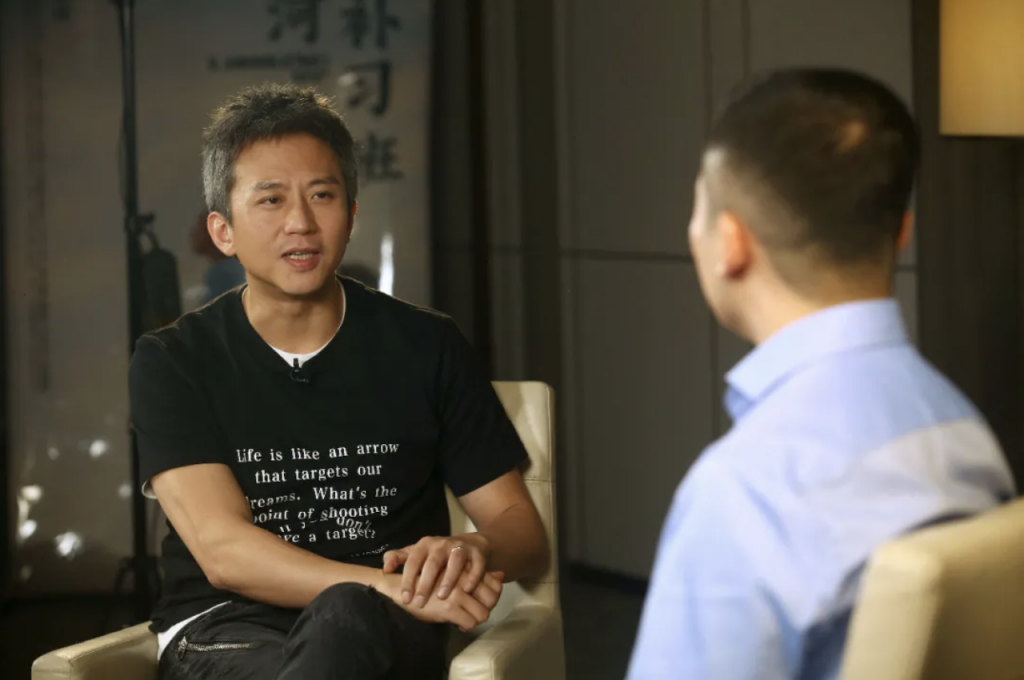Chinese celebrities are ubiquitous in the domestic marketing scene, serving as a crucial link between content and commerce. Brands have been keen to engage stars in new ways, moving beyond the standard ambassador or spokesperson roles to finding new ways of engaging with fan-consumers, such as through e-commerce livestreaming.
One recent trend that is picking up steam is for major tech platforms to sign on celebrity ambassadors. Last month, Bytedance’s Xigua Video announced that popular actor Deng Chao (best known for starring in the 2016 megahit “The Mermaid” (美人鱼)) would be the platform’s “chief curiosity officer,” aligning Xigua’s rebrand, which included changing its slogan from “Giving you freshness and good-looking” to “Lighting up curiosity for life.”
In his new role, Deng will produce vlogs for the platform, share snippets of his daily life, and promote Xigua Video’s upgraded content offerings of high-quality productions from both professional creators and film and television studios, with the hopes that Deng’s broad appeal will help widen the audience beyond Gen Z youth. Xigua Video also added Yu Shuxin of girl group The9 as a “curiosity ‘like’ officer” to further help users explore the wealth of content on the platform.
Other commercially valuable celebrities that have recently taken starring roles representing tech firms include:
Idols Lay Zhang and Wang Yibo for Youku’s VIP paid subscriber service
Actor-singer Chen Kun for short video app Kuaishou
Actress Liu Tao for Alibaba’s Juhuasuan flash sales platform
Actress-singer Ouyang Nana for Alibaba’s New Power Week promotion

Celebrities are also accelerating moves to establish their own brands, with a major emphasis on the streetwear space. Jay Chou, the king of Chinese pop, is a model for others with his far-reaching business interests that include restaurants, headphones, and the clothing brand and retailer Phantaci, followed by others such as Edison Chen (Clot), Wilbur Pan and Li Chen (NPC and the controversial MLGB), and Shawn Yue (Madness and Common Sense).
This year’s crop of launches is being led by popular idols and singers, who may have had more time to devote to brand development as a result of the coronavirus, which halted productions and live performances for a time.
Singer Jackson Wang has worked with luxury houses such as Armani, Cartier, and Fendi (for which he co-branded a capsule collection), but his own Team Wang label is more accessible, with prices ranging from around $50 to $225. The brand made a splashy debut in July with the opening of an artsy pop-up store and concept space in Shanghai, and has collaborated with StockX for a limited edition “IPO” product drop.
Justin Huang (Huang Minghao) started his TwoEx2 brand last year, but boosted its marketing earlier this year via social media and the opening of Taobao shop to sell the small collection of nine pieces.
William Chan made his first attempt at a streetwear brand in 2018, but it failed to take off. This year, his Canotwait line made a more successful launch with the opening of a creative Venus flytrap-themed pop-up shop in Shanghai and a collaboration with Japanese designer Masanori Morikawa’s McDada (formerly known as Christian Dada), which sold out within three hours of being released via the Chinese lifestyle and streetwear resale platform Poizon.
And last but not least, Hua Chenyu’s Born to Love brand goes beyond clothing to offer collectible figurines imbued with the singer’s symbolism (Mars, mouse, love, and his 30th birthday), the ultimate celebrity derivative product.
Read more here at Content Commerce Insider.






